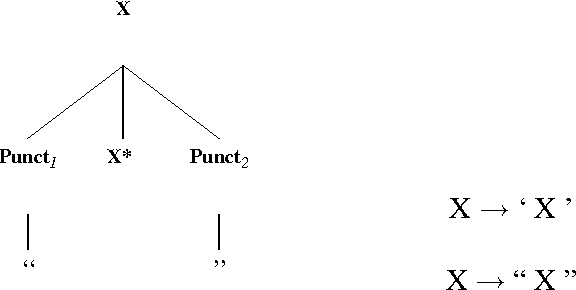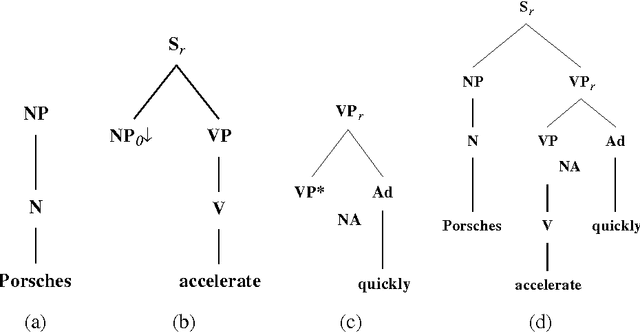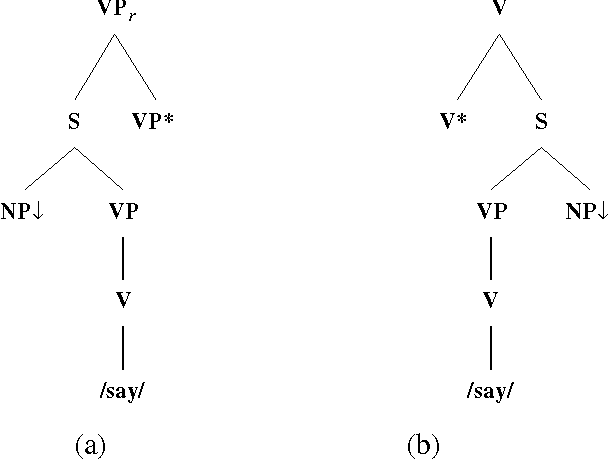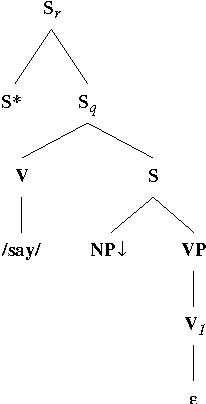Punctuation in Quoted Speech
Paper and Code
Aug 16, 1996



Quoted speech is often set off by punctuation marks, in particular quotation marks. Thus, it might seem that the quotation marks would be extremely useful in identifying these structures in texts. Unfortunately, the situation is not quite so clear. In this work, I will argue that quotation marks are not adequate for either identifying or constraining the syntax of quoted speech. More useful information comes from the presence of a quoting verb, which is either a verb of saying or a punctual verb, and the presence of other punctuation marks, usually commas. Using a lexicalized grammar, we can license most quoting clauses as text adjuncts. A distinction will be made not between direct and indirect quoted speech, but rather between adjunct and non-adjunct quoting clauses.
 Add to Chrome
Add to Chrome Add to Firefox
Add to Firefox Add to Edge
Add to Edge